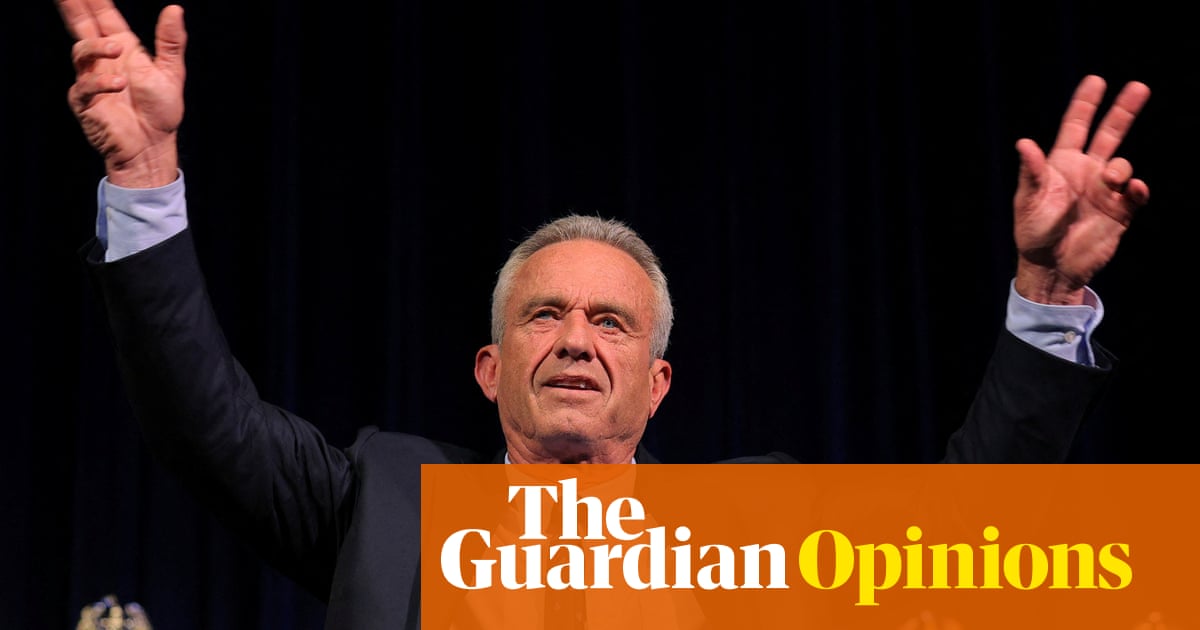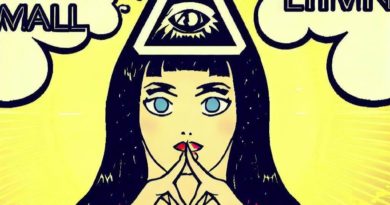The Guardian view on Robert F Kennedy Jr: from Camelot to conspiracy-mongering | Editorial

Robert F Kennedy Jr, campaigning to be the Democratic nominee for the presidency, likes to call himself a “Kennedy Democrat”. His own siblings disagree. His uncle’s presidency, like his namesake father’s career and presidential campaign, had an aura of hope and responsibility as well as glamour. RFK Jr talks vaguely of overcoming divisions, but in reality trades upon a peculiar blend of “cynicism and credulity”, as one commentator notes. Most recently he claimed that “Covid-19 is targeted to attack Caucasians and black people. The people who are most immune are Ashkenazi Jews and Chinese,” in comments reported by the New York Post.
However jarring the remarks – he partially backtracked later – they sit comfortably with his long history of fomenting conspiracy theories and his nonsensical, anti-scientific views. He has falsely linked childhood immunisations to autism and wifi to cancer and “leaky brain”, claimed that HIV does not cause Aids, and suggested that chemicals in drinking water could make children transgender. One of his sisters warned that his latest comments put people’s lives in danger.
So much for the Kennedy legacy. Nor does he look like much of a Democrat. He is being hyped by billionaires and rightwing broadcasters such as Sean Hannity, and has gained traction among Republicans rather than Democrats. Some see his campaign primarily as a vehicle for his ego and brand, which may be less damaging to President Biden’s chances than a possible third-party bid by Democratic senator Joe Manchin and Republican former governor Jon Huntsman’s No Labels group. A poll this month suggested that a “moderate, independent third-party candidate” could gain about 20% of the vote and result in a second term for Donald Trump. But talk up Mr Kennedy enough and he might have a marginal effect in denting President Biden. Others suspect that Mr Kennedy wants the Republican vice-presidential slot. Steve Bannon and Roger Stone have both floated the idea of a Trump-Kennedy ticket.
None of this has prevented him finding up to 20% support among Democrats in polls. Camelot nostalgia and the celebrity factor have clearly played a large part in that. Mr Kennedy has never run for any public office, still less held it, but boasts that he’s “been around” politics since he was a little boy. The lack of enthusiasm for the sitting president is also potent: most Democrats do not want him to run again, although they indicate that they would vote for him over Mr Trump. Voters, including independents, are not giving Mr Biden credit for the improving the economy or other achievements. That may not be fair. But it’s a fact.
Mr Kennedy’s appeal goes deeper, however. He has found a home in the world described by a new book, Conspirituality, where new age spirituality and the “wellness” industry overlap with the politics of paranoia, as well as alongside the Trumpian right. Distrust of institutions, suspicion at the marriage of state and corporate power, and fear and sadness at the despoliation of the environment are in themselves reasonable concerns. But the political ambition that feeds upon and mutates them into more poisonous beliefs is unpalatable.
Mr Kennedy’s anti-vaccine conspiracy-mongering has caused enough damage. His latest remarks show how easily conspiracy theories blur into bigotry and scapegoating. It may be farcical to hear a multimillionaire from the country’s most famous political dynasty railing against “elites”, but there is nothing funny about this campaign.
This article has been archived for your research. The original version from The Guardian can be found here.

